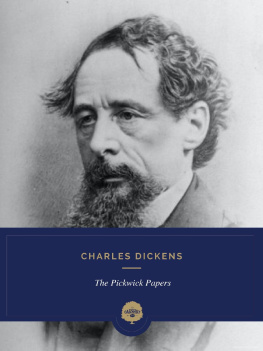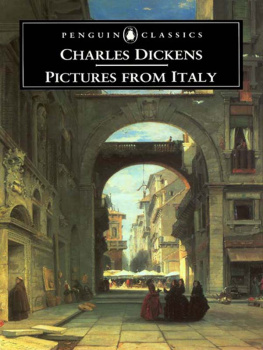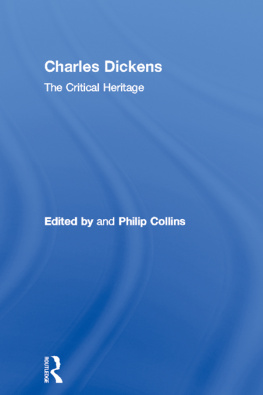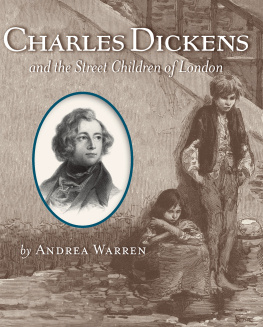PREFACE
I AM too old a journalist to pretend to be unconscious of the fact that this book will prove a temptation to those into whose hands it will fall for review. Ten years ago I should have gloried in the opportunities it affords for mordant satire and biting criticism. I should myself have described it as a notable example of the art of bookmaking by excerpts, and I should have riddled the length and frequency of the quotations. It is only fair, then, to my erstwhile confreres of the Press to say quite frankly that the number and voluminous nature of the quotations herein are part of my mature and studied plan. I started out not to interpret Dickens, but to present him as his own interpreter. Buried in his multitude of novels, drifting through his ephemeral articles for daily and weekly newspapers are teachings political and social which I found possessed an appropriateness and a significance for even present times. I have sought not to make a book by collecting the teachings indiscriminately, but rather by gathering together in orderly array the arguments direct from Dickens, which should illustrate my theory and prove his ease.
Furthermore, it seems to me important to emphasize the fact that Charles Dickens was in a very special sense a social reformer. It was not simply that he loathed shams. With him it was not merely a case of creating characters at which the whole world laughed, humbugs who excited its wrath and impostors who provoked its derision. He was at heart and by conviction a reformer. He looked out upon his age and found corruption in public places and cynicism displayed towards the vital things in national life and character. He found the poor neglected in primary things, such as education, housing, and sanitation, and drilled, dragooned and disciplined out of all reason in non-essentials. Stupendous neglect of child-life went side by side with a grotesquely organized hypocrisy for its welfare. And he set himself to remedy these things, not merely by creating Squeers, Bumble, Jarndyce, Gradgrind, Bounderby, and the rest, but by a constant endeavour in other directions to awaken the social consciousness to clamant evils and imperious needs.
More than in his novels, the deep and passionate reforming zeal of the man is disclosed in those many anonymous articles and sketches which he contributed to quite a variety of journals. In these the enthusiasm, the scorn, the hatred, and sometimes, I am bound to confess, even the plaintive acrimony of the real Charles Dickens is to be found. One arises from a perusal of these comparatively unknown examples of his work as a publicist, with a renewed assurance that the views of his characters in his novels were not interpolated merely for the purpose of creating a literary or emotional effect: they were the burning conviction of the creator of the character himself. Upon these, to this generation, almost unknown and certainly almost untapped sources of educational supply, I have specially drawn for my estimate alike of the depth and extent of Dickens's ardour for making straight the crooked places of our social life.
Allegories, parables, whimsical sketches, under the quaintest and most fantastic titles, which no one would have suspected were from his pen, all contain either some protest against a social abuse or some plea for larger life for the poor whom he loved. In the following pages I trust I have made it clear, however, that it was no narrow parochialism that evoked these views. Dickens saw and said in his day that the greatest asset to the Empire is the people of the Empire, and he believed that the truest and highest patriotism consists in destroying slums and improving the conditions of the people morally, physically, and intellectually. He held that the first burden of Empire is to raise a truly Imperial race, of well-housed, well-nurtured, and well-equipped men. Party government, as he knew it, was mostly an uneasy compromise between rival stupidities. In his view the nation's leaders should be men of wide outlook and larger vision, not of authority merely. Like Whitman, he had a supreme contempt for " the never-ending audacity of elected persons." It was a cardinal article of his political faith that the people themselves should rule; the duty of statesmen was to keep unceasing vigil over all their interests whilst they were doing it. He saw the cretinous stupefaction into which the people lapse when alike the responsibility and dignity of actual government and the control of their affairs is removed from them and how easily what time the political mountebank succeeds by mere fearlessly perseverant self-assertion. And he was not afraid of change. The free circulation of ideas and opinions which invariably precede change had no terrors for him. I think it was Tucker who once said very wisely that if there were more extremists in evolutionary times there would be no revolutionary times at all. That represented Dickens's attitude, as the selections which I have quoted from his little-known journalistic work will make abundantly clear.
The richest mine in which I have dug, and from which I have gathered an embarrassment of ore, has been the comparatively little-known Miscellaneous Papers. These, it will be recalled, were first included in Dickens's collected works in the national edition, with a special introduction by Mr. B. W. Matz, whose infinite pains and research had traced practically every item to its source and represented these articles and papers with the date of their publication and the journal in which they appeared. In so doing I think Mr. Matz has rendered not only an invaluable, but an incalculable service to the history of literature, and one indeed which is worthy of widespread recognition, for until he had discovered and reprinted them in this edition, the majority of the articles had been unknown or unidentified with the novelist. Subsequently they were included in the centenary and other editions.
So that in the several references which I make to Household Words; All the Year Round; The Examiner; The Morning Chronicle, and the Daily News it should be borne in mind that I am quoting those which can be found in the volume of Miscellaneous Papers and verified there.
For the rest this prefatory note gives me an opportunity I needed, of adding to my private thanks, a public acknowledgment of the help and encouragement I have received in the preparation of this book at the hands of my two friends Mr. B. W. Matz and Mr. C. Sheridan Jones. They have read the proofs, verified the quotations, supplied me with helpful hints and suggestions, and rendered me service in a variety of ways. Two more enthusiastic Dickensian scholars it has never been my lot to meet. The very real advantage which has accrued to me by reason of their co-operation will be manifest to those who month by month peruse The Dickensian, which the former edits with such conspicuous ability, and alike the brilliant and forcible contributions from the pen of the latter, which adorn the pages of many of the weekly and monthly periodicals.
W. WALTER CROTCH.
LONDON, October 912.









